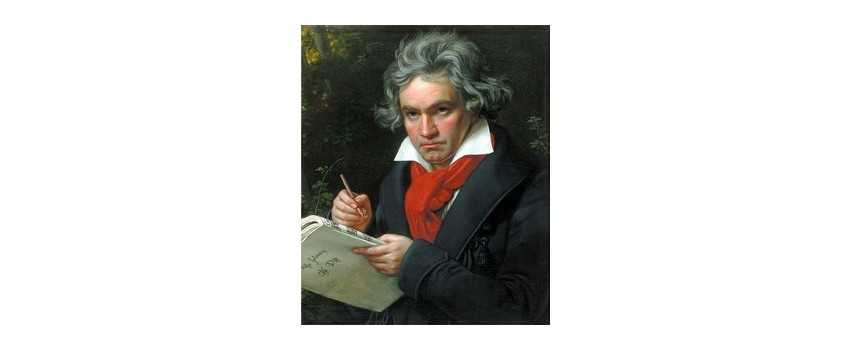Beethoven, Sonatas For Violin And Piano Bk 1 (Verlag)
Ludwig van Beethoven, Sonatas for Violin and Piano Bk 1. Ed. Sieghard Brandenburg. Pub. G. Henle Verlag.
Ludwig van Beethoven, a German musician and composer, is widely regarded as one of the most celebrated figures in Western music history. His compositions have become a cornerstone of the classical music canon, spanning the transition from the classical to the romantic periods.
Early Years and Musical Development
Beethoven was born on December 17, 1770, in Bonn, Germany. He displayed exceptional talent at a young age and received his early musical education from his father, Johann van Beethoven, who was a court musician. Recognizing his son's prodigious abilities, Johann sought out renowned musicians in Bonn to further nurture young Ludwig's talent.
During his early years, Beethoven immersed himself in the works of influential composers of the time, such as Joseph Haydn and Wolfgang Amadeus Mozart. Their classical styles served as a foundation for Beethoven's musical development. By the age of 14, he was already a proficient pianist and was appointed as an assistant organist at the court of Maximilian Franz, the Elector of Cologne.
Beethoven's Three Periods
Beethoven's career can be divided into three distinct periods: early, middle, and late. Each period reflects a different phase of his artistic growth and showcases his evolving style and musical innovations.
The Early Period (1770-1802)
During Beethoven's early period, which lasted until 1802, he honed his skills and established himself as a composer of great promise. His early works were heavily influenced by the classical style of Haydn and Mozart. Notable compositions from this period include his first significant orchestral piece, published in 1800, and his set of string quartets, published in 1801.
The Middle Period (1802-1812)
Beethoven's middle period, also known as the "heroic" period, marked a departure from the classical styles of his predecessors. This phase, spanning from 1802 to 1812, showcased Beethoven's artistic evolution and his bold exploration of new musical territories. It was during this period that he began to experiment with form and expression, pushing the boundaries of traditional composition.
Despite the challenges he faced, including the onset of deafness, Beethoven's creativity flourished during his middle period. In 1806, he published his Violin Concerto, a masterpiece that displayed his innovative approach to orchestration. Four years later, he presented his final piano concerto, the renowned "Emperor," dedicated to his patron Archduke Rudolf of Austria.
The Late Period (1812-1827)
The late period of Beethoven's career, spanning from 1812 until his death in 1827, was characterized by a heightened sense of introspection and a deep exploration of musical expression. By this time, Beethoven's hearing had significantly deteriorated, but it did not hinder his creative output.
During his late period, Beethoven produced some of his most profound and emotionally charged works. Notable compositions from this period include his Missa Solemnis, a monumental choral composition written between 1819 and 1823, and his Ninth Symphony, one of the first choral symphonies, composed between 1822 and 1824.
Beethoven's Masterpieces
Throughout his illustrious career, Beethoven composed numerous masterpieces that continue to captivate audiences to this day. Let's explore some of his most renowned works across different genres.
Symphony No. 3, "Eroica"
Symphony No. 3
Beethoven's Symphony No. 3, also known as the "Eroica," is a monumental work that marked a turning point in symphonic composition. Premiered in 1804, it showcased Beethoven's mastery of the form and his ability to convey profound emotions through music. The "Eroica" Symphony broke new ground with its length, complexity, and thematic development, solidifying Beethoven's status as a visionary composer.
Fidelio
Beethoven's only opera, Fidelio, tells the story of a woman named Leonore who disguises herself as a man, Fidelio, to rescue her husband from political imprisonment. Premiered in 1805 and reworked in 1814, Fidelio showcases Beethoven's ability to combine powerful music with a compelling narrative. The opera's themes of love, heroism, and political oppression resonate with audiences to this day.
String Quartets
String Quartets
Beethoven's string quartets are considered some of the most profound and innovative works in the chamber music repertoire. His late string quartets, composed between 1825 and 1826, are particularly revered for their complexity, introspection, and bold experimentation with form. These quartets, including the famous "Grosse Fuge," demonstrate Beethoven's ability to push the boundaries of traditional composition and pave the way for future generations of composers.
Legacy and Impact
Beethoven's impact on the world of music cannot be overstated. His compositions revolutionized classical music, bridging the gap between the classical and romantic periods. His innovative approach to form, harmonic progression, and emotional expression laid the foundation for future generations of composers.
Beethoven's works continue to be performed and celebrated worldwide, captivating audiences with their emotional depth and timeless beauty. His influence extends beyond the realm of classical music, inspiring artists and musicians across genres. Beethoven's legacy as one of the greatest composers in history is firmly cemented, and his contributions to the world of music will be cherished for generations to come.
Conclusion
Ludwig van Beethoven's life and music are a testament to human resilience, creativity, and the power of artistic expression. Despite facing personal challenges, including deafness, Beethoven persevered and continued to innovate, leaving behind a remarkable body of work that continues to inspire and captivate audiences today. His journey through the three periods of his career showcases his artistic growth and the evolution of his musical style. Beethoven's masterpieces have left an indelible mark on the world of music, ensuring his enduring legacy as one of the greatest composers of all time.

Ludwig van Beethoven, Sonatas for Violin and Piano Bk 1. Ed. Sieghard Brandenburg. Pub. G. Henle Verlag.
Ludwig van Beethoven, Sonatas for Violin and Piano Bk 2. Ed. Sieghard Brandenburg. Pub. G. Henle Verlag.
Violin and Piano edition of Ludwig van Beethoven's Concerto in D Op.61, with cadenzas. Edited by Flesch. Published by Edition Peters.